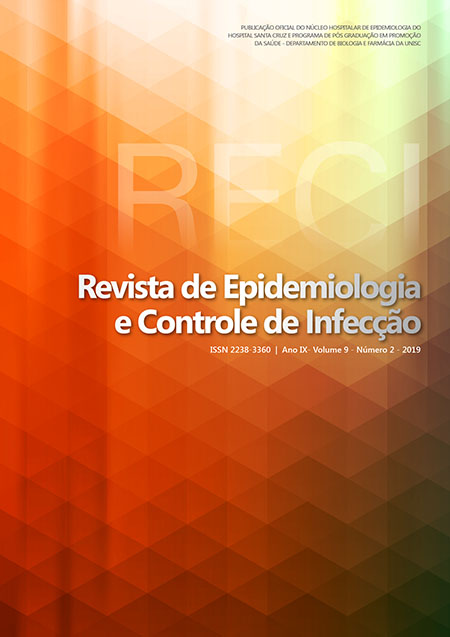Epidemiological overview of chagas disease in the state of Amazonas, from 2004 to 2014
DOI:
https://doi.org/10.17058/reci.v9i2.12127Abstract
Background and Objectives:Chagas disease (CD), caused by Trypanosoma cruzi,a flagellate protozoan, was discovered over 100 years ago, spread throughout the Americas, mainly in South America, affecting millions of people around the world. CD affects several people in the Western Region of Amazonia, with increasingly frequent numbers due to several factors that contribute to the increase of cases in the region. but the consumption of contaminated drink is the main way of transmission of the disease in the region. This study aims to describe and analyze the epidemiological panorama of Chagas disease in the state of Amazonas, from 2004 to 2014. Methods: This is an ecological study, where only secondary data obtained from Sinan referring to reported cases of T. cruziinfection in the entire state of Amazonas were used. Results: a total of 100 cases of CD were reported in the state of Amazonas, from 2004 to 2014, with a higher occurrence in 2007 and 2010, during April and December, with a higher frequency in the 20-39 age group and in women. Conclusion:the need to implement an effective epidemiological control service to monitor the CD transmission route and its vectors was identified, because it is a public health problem that may be linked to social and cultural determinants. The promotion of educational activities to raise awareness of the community of this disease. Keywords: Epidemiology. American trypanosomiasis; Amazonia.Downloads
Downloads
Published
How to Cite
Issue
Section
License
The author must state that the paper is original (has not been published previously), not infringing any copyright or other ownership right involving third parties. Once the paper is submitted, the Journal reserves the right to make normative changes, such as spelling and grammar, in order to maintain the language standard, but respecting the author’s style. The published papers become ownership of RECI, considering that all the opinions expressed by the authors are their responsibility. Because we are an open access journal, we allow free use of articles in educational and scientific applications provided the source is cited under the Creative Commons CC-BY license.


